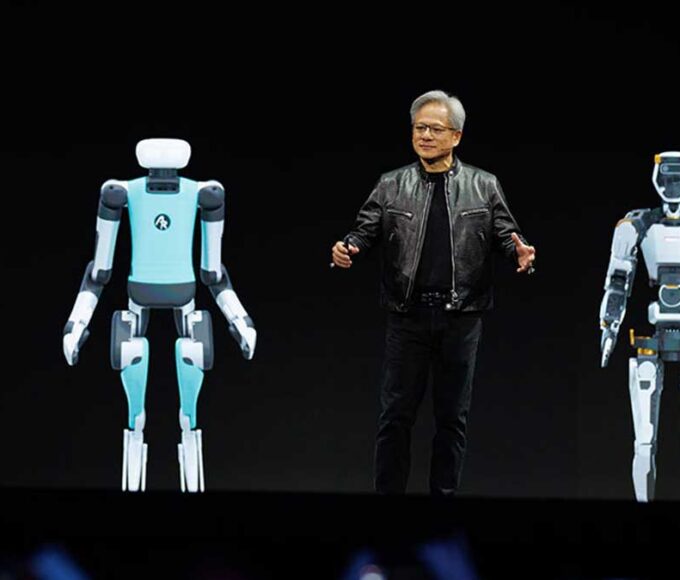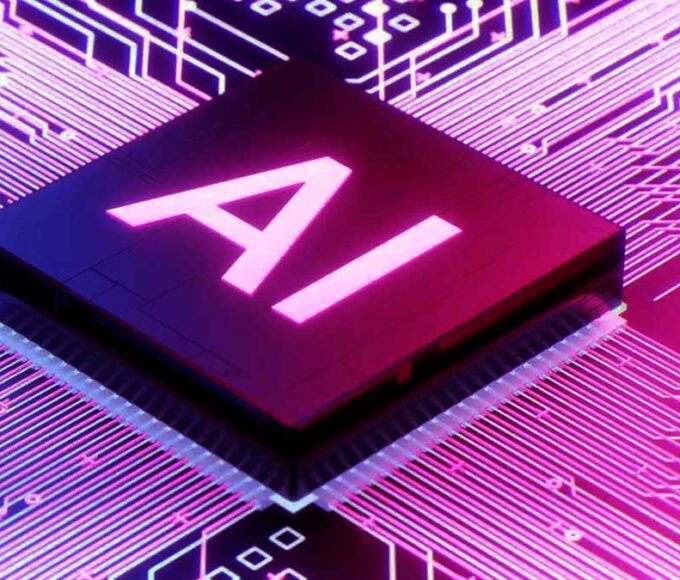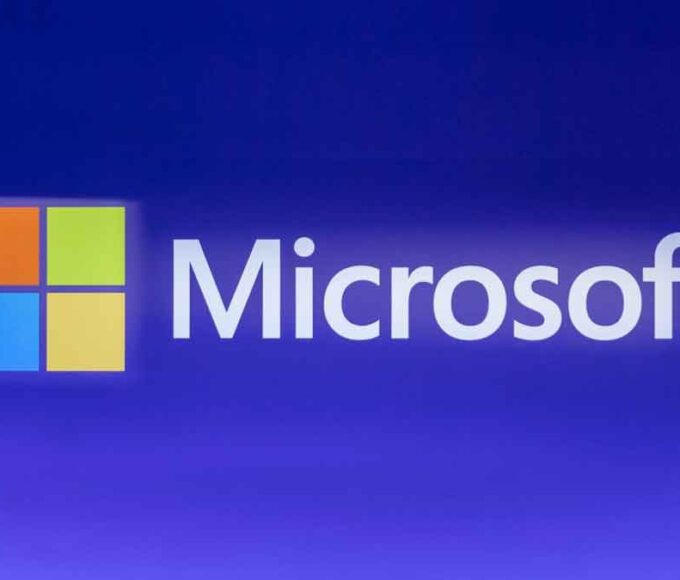- Home
- Billionaires
- Investing Newsletters
- 193CC 1000
- Article Layout 2
- Article Layout 3
- Article Layout 4
- Article Layout 5
- Article Layout 6
- Article Layout 7
- Article Layout 8
- Article Layout 9
- Article Layout 10
- Article Layout 11
- Article Layout 12
- Article Layout 13
- Article Layout 14
- Article Sidebar
- Post Format
- pages
- Archive Layouts
- Post Gallery
- Post Video Background
- Post Review
- Sponsored Post
- Leadership
- Business
- Money
- Small Business
- Innovation
- Shop
Recent Posts
Could AI Be the Next iPhone Moment?

The term “iPhone moment” describes a technological breakthrough that pushes innovation into mainstream adoption. When Apple launched its first iPhone in 2007, it revolutionized the tech world, making it commonplace for individuals to carry a powerful, internet-enabled computer in their pockets. This shift drastically altered how people interacted with technology, moving from desktop-only internet access to ubiquitous, mobile connectivity.
This transformation was monumental. Prior to the iPhone, the internet, online shopping, and social media were confined to desktops, limiting their reach to those with computer access. With the advent of the iPhone, the internet became accessible everywhere, fundamentally changing daily life and communication.
Now, Apple’s new collaboration with OpenAI, aimed at integrating ChatGPT-like services into its mobile and desktop devices, has the potential to mark a similar “iPhone moment” for generative AI.
For those working in tech, generative AI is already a significant tool. Yet, for the average consumer, its impact has been less pronounced. Recent studies indicate that generative AI has not yet penetrated the mainstream. However, the potential for this to change is substantial if AI becomes seamlessly integrated into everyday technology, potentially making as profound an impact on society as the smartphone did.
An “iPhone moment” goes beyond mere popularity. Apple’s breakthrough was not just about introducing a new gadget; it was about creating an intuitive, user-friendly device that quickly demonstrated its life-changing potential. It set new standards for user experience and functionality, leading to the rise of the app economy and the creation of the App Store, a marketplace for applications serving countless needs.
Today, there are numerous generative AI tools, but most are geared toward business, creative, or technical applications. These tools often lack immediate relevance for the average user. In contrast, general-purpose AI tools like ChatGPT might seem too broad or not sufficiently specialized for everyday tasks.
Apple has the potential to change this perception. By incorporating AI across its suite of products—used daily for communication, shopping, navigation, and entertainment—it could introduce AI to a broader audience. Enhancing Siri with advanced AI could normalize complex human-machine interactions beyond basic voice commands. Features like AI-powered recommendations for Apple Music or Apple Maps could make AI more integral to daily life.
The partnership between Apple and OpenAI could therefore be pivotal in transforming AI from a niche technology to an everyday tool, potentially making AI as commonplace as smartphones are today. However, this shift also brings challenges.
AI is not without its issues, and widespread adoption could exacerbate existing problems. One significant concern is the environmental impact. AI technologies require substantial energy and contribute to carbon emissions. As AI becomes more prevalent, these issues could worsen, conflicting with global efforts to reduce carbon footprints.
Another challenge is AI hallucination. Generative AI tools, including ChatGPT, occasionally produce incorrect or fabricated information. While this is manageable in controlled scenarios, widespread use in critical applications like navigation or scheduling could lead to significant problems if users rely on inaccurate AI outputs.
Privacy and data security are also major concerns. Users must be aware of the risks associated with sharing personal information with AI systems, which often have opaque data handling practices. The recent concerns raised by Elon Musk about privacy issues with Apple’s new AI initiatives highlight the importance of addressing these risks.
Apple’s decision to collaborate with OpenAI makes sense given its lack of a proprietary generative AI before this partnership. OpenAI’s prominence in the field makes it a logical choice. Yet, integrating AI into daily life presents challenges similar to those faced during the rise of the internet and smartphones.
Apple has generally been strong in protecting user privacy, but it will need to address potential issues like AI hallucination and environmental impact to ensure that the integration of AI benefits society without causing further harm.
The partnership between Apple and OpenAI is poised to bring significant changes. The potential for AI to become as integral to daily life as smartphones is immense, but it is essential to navigate the accompanying challenges carefully. Balancing innovation with responsible practices will be crucial in ensuring that the mainstream adoption of generative AI is both beneficial and sustainable.
Recent Posts
Categories
- 193cc Digital Assets2
- 5G1
- Aerospace & Defense46
- AI37
- Arts3
- Banking & Insurance11
- Big Data3
- Billionaires426
- Boats & Planes1
- Business328
- Careers13
- Cars & Bikes76
- CEO Network1
- CFO Network17
- CHRO Network1
- CIO Network1
- Cloud10
- CMO Network18
- Commercial Real Estate7
- Consultant1
- Consumer Tech180
- CxO1
- Cybersecurity68
- Dining1
- Diversity, Equity & Inclusion4
- Education7
- Energy8
- Enterprise Tech29
- Events11
- Fintech1
- Food & Drink2
- Franchises1
- Freelance1
- Future Of Work2
- Games141
- GIG1
- Healthcare78
- Hollywood & Entertainment186
- Houses1
- Innovation42
- Investing2
- Investing Newsletters4
- Leadership65
- Lifestyle11
- Manufacturing1
- Markets20
- Media193
- Mobile phone1
- Money13
- Personal Finance2
- Policy567
- Real Estate1
- Research6
- Retail1
- Retirement1
- Small Business1
- SportsMoney33
- Style & Beauty1
- Success Income1
- Taxes2
- Travel10
- Uncategorized8
- Vices1
- Watches & Jewelry2
- world's billionaires395
Related Articles
Jensen Huang Sees Physical AI as the Next Big Leap
Nvidia CEO Jensen Huang believes that Physical AI will be the next...
By 193cc Agency CouncilAugust 10, 2024AI Surge Boosts Demand for Memory and Storage Innovations
The rise of artificial intelligence (AI) is significantly boosting the need for...
By 193cc Agency CouncilJuly 5, 2024Generative AI Set to Transform Finance Jobs
Generative AI is poised to revolutionize the financial services industry by automating...
By 193cc Agency CouncilJune 10, 2024Microsoft’s AI Monetization and Azure Growth Surge
Microsoft (MSFT) is significantly increasing its monetization of AI technologies across its...
By 193cc Agency CouncilJune 3, 2024















Leave a comment